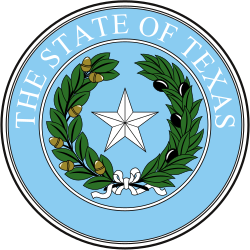August 22, 1942 | |||||||||||||||||
| |||||||||||||||||
 County results [1] O'Daniel: 50–60% 60–70% 70–80% 80–90% Contents
No votes | |||||||||||||||||
| |||||||||||||||||
| Elections in Texas |
|---|
 |
The 1942 United States Senate election in Texas was held on November 3, 1942. Incumbent Democratic U.S. Senator W. Lee "Pappy" O'Daniel was re-elected to a second term.
O'Daniel, who had only been elected to the seat in a special election the year before, narrowly fended off a primary challenge from former Governor James V. Allred. He won the general election with only nominal opposition. The Republican Party, now at its nadir in the state, did field a token candidate but did not factor in the election.


